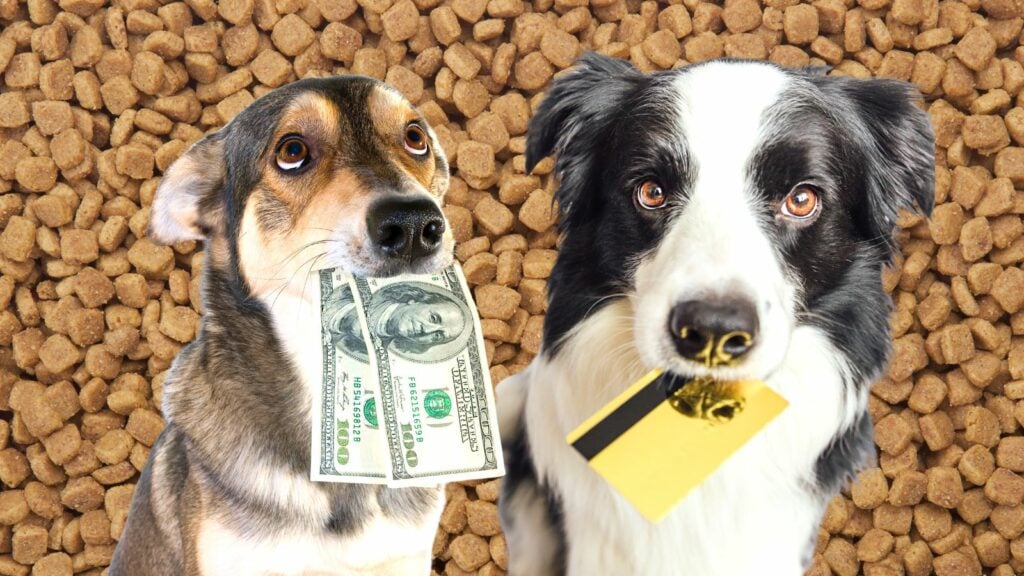🐕 This is a sponsored article * [what is this?]
It’s one of life’s daily frustrations: your oat milk latte costs more than the dairy version. Your soy-based meatballs are £2 more expensive than the beef ones. Your cashew-based camembert is three times the price of the cow’s cheese equivalent! And now that plant-based dog food is a thing, we’re experiencing déjà vu – how is it that taking out an ingredient makes something more expensive?
You’re right, it makes no sense. Rearing animals for food – housing them, feeding them, giving them medical care, transporting them and, of course, slaughtering them – is far more expensive than simply growing plants for you and your dog to eat directly. So who’s paying for all those additional costs? Well, actually… it’s still you.
The hidden cost of cheap meat
Meat, dairy, and eggs are cheap because they’re heavily subsidized by the government. Government subsidies are financial grants funded by public tax money (yes, yours!) and given to certain industries to lower production costs. Today, billions of pounds of public money is spent subsidizing animal agriculture.
According to the UK government department Department for Environment, Food and Rural Affairs (Defra), as much as 90 percent of the annual profit of livestock farmers comes from subsidies, compared to only 10 percent of the annual profit of fruit farmers. We Shih Tzu not: your taxes are being used to keep the most unsustainable, unethical, and unhealthy industries afloat, leaving plant-based producers to fend for themselves – and forcing up their prices.
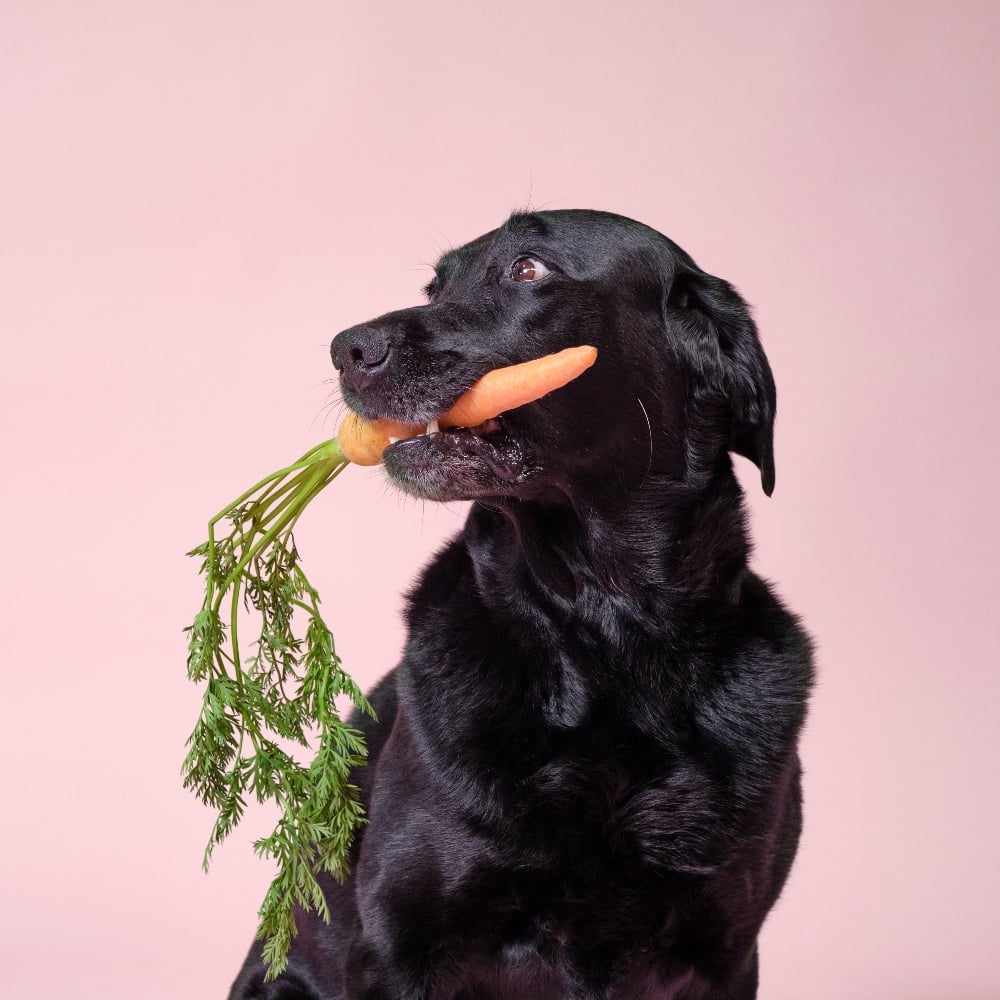
What’s more, the meat-based pet food industry is supporting the false economy of animal agriculture. If it is to make a profit, while selling its main products at low prices, the animal farming industry also needs to sell its by-products (the bits of meat that humans won’t eat) in dog and cat food. In fact, “rendering” these by-products to make pet food is a significant income strand for intensive farming. The National Renderers Association (NRA) in the US reveals that “the sustainability of animal agriculture depends on a reasonable and practical use of the by-products generated.”
Woah there… “depends on”?
So, animal farming couldn’t exist without the pet food industry? Well, the NRA admits that the meat that humans won’t eat – like bones, fat, blood, feathers, and internal organs – “is a large volume of by-product that would quickly overtake landfills if not rendered.” Rendering and selling this by-product in meat-based dog food keeps animal agriculture sustainable and it’s yet another factor helping to keep meat cheap.
Of course, it’s not just the meat that’s cheap. Supermarket monopolies have pushed down the price of milk below the cost of the production, not great for farmers but even more disturbing when we think about the high price paid by cows. The average price of a dozen eggs is less than £1 despite rising costs in feed, energy, labor, and packaging. The UK also allows meat and dairy to be sold at 0 percent VAT and many have argued that a “meat tax” should be introduced to discourage people from buying unhealthy, high-carbon-emission animal products.
An opportunity for pawsitive change
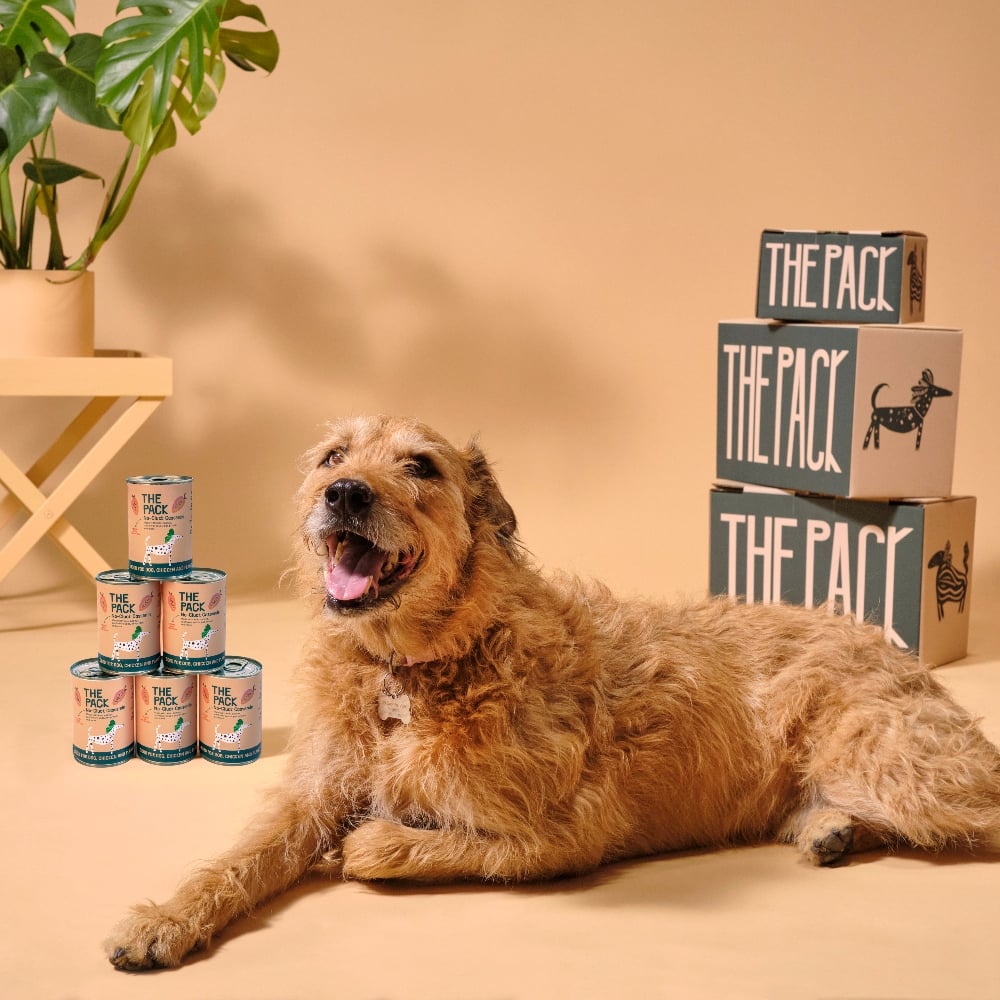
That’s because the most obvious way to shift government funding to plant-based farming (thus lowering the price of vegan alternatives) is to get people to buy less meat, dairy, and eggs and to buy more plant-based fodder – for humans and dogs. In 2018, UK farmers received around £3.5 billion in EU agricultural subsidies, of which roughly £700 million was used to subsidize factory farming. But now that we’ve left the European Union, the UK is free to design its own farming policy.
Policymakers are already considering a “public money for public goods” approach, which means farmers would be paid to provide wildlife habitat, welfare improvements, and a more nutritious food supply, including more organic plant-based foods. If we want these kinds of policies to become more than a doggy dream, we need to make conscious choices about where we spend our money. We need to buy out of the fake, unsustainable economy of “cheap” animal products.
But £3 for a can of dog food? In the middle of an economic crisis? You must be barking!
We know: it’s a vicious cycle. While plant-based options continue to be more expensive, and during today’s cost-of-living crisis, there’s less incentive and less ability to choose them over cheaper meat, egg, and dairy-based food. Especially when it comes to feeding our dogs, who tend to be less fussy about what they nosh and often need a lot of food. Yet farming animals for pet food is destroying the environment and, with 73 percent of farmed animals in the UK kept in factory farms, cruelly exploiting our four-legged friends.
The price of manufacturing ‘novel’ food
Another reason why we’ll see plant-based dog food become more affordable as it becomes more mainstream is to do with manufacturing. A boring but practical answer to why “vegan” pet food is more expensive is because it’s still a relatively new concept. That means there are only a few manufacturers which have the skills, equipment, and cleaning processes to create meat-free dog food.
So while plant-based pet food remains an “anomaly,” companies like THE PACK, Hownd, and Petaluma are charged extra to have additional staff working on their “special” products. Machines need to be carefully washed down before being used to avoid contamination of the “vegan” food and, with every production run, extra workers need to be present to ensure quality control and safety.
Can you put a price on health?

So aside from not wanting to subsidize a cruel and environmentally damaging industry, is there any other motivation to pay more for vegan pet food?
You bet – what about the health of our dogs?
You’re paying for quality. Most cheap, commercial meat-based food has a low percentage of actual meat content, padded out with poor-quality cereals, and the meat that is included is more often than not the rubbishy by-products that humans won’t eat.
While there’s nothing inherently wrong with giving offal or strange bits of animal to dogs, most of us would like some transparency about what we’re feeding. Furthermore, chemical toxins in the environment build up (bioaccumulate) in animals the higher we move up the food chain, meaning that when our pets eat other animals they also consume the nasties that those animals ate.
In 2015, the World Health Organization (WHO) warned that processed meat consumption is linked to cancer in humans (and that red meat likely is, too). The organization urged us to reduce the amount of meat we eat – surely we should also be concerned for our dogs? That’s not all: rancid fats are often present in commercial meat-based diets, a leading source of free radical production in dogs. These free radicals, unstable atoms that can damage cells, have been linked to arthritis.
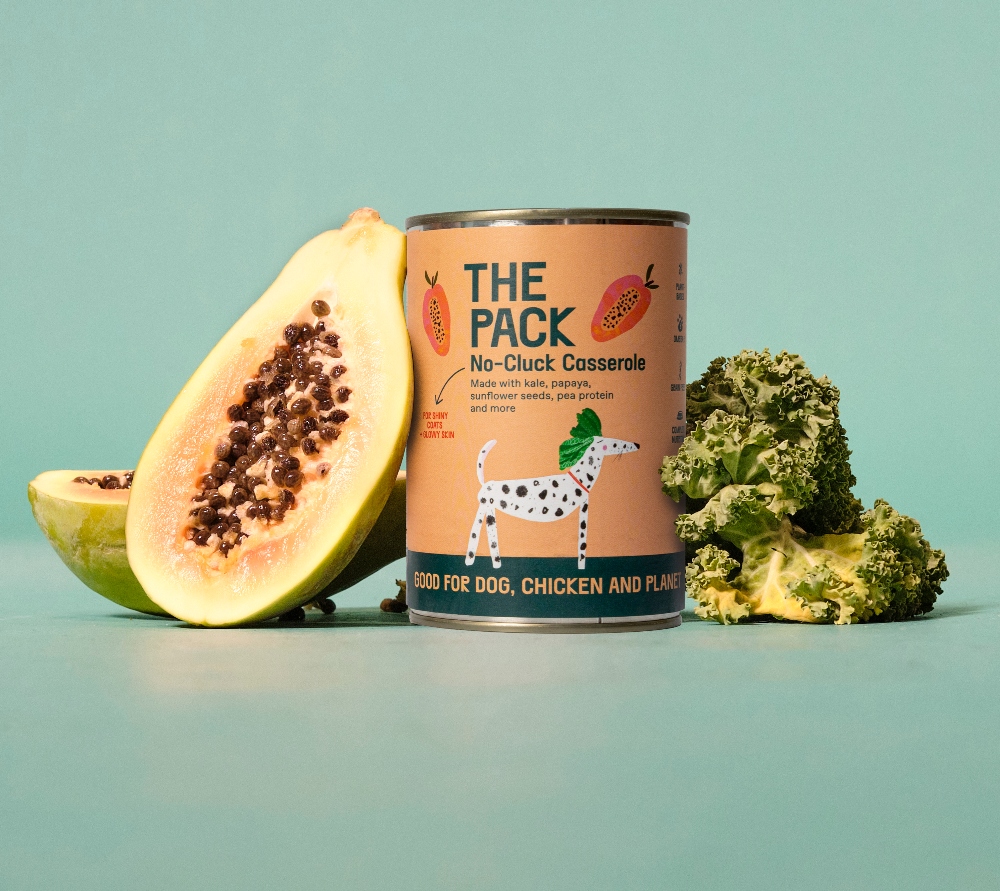
Now compare this toxic meaty cocktail with the ingredients in a vegan dog food like THE PACK: fresh papaya for healthy digestion, vitamin-rich kale, whole lupin beans for gut health, pea protein for strength, butternut squash for fiber, broccoli for calcium… the list goes on. In every spoonful, you can see visible veg, pulses, and fruits, rather than an overcooked grey mush.
Petaluma’s plant-based kibble similarly contains chickpeas, peanut butter, turmeric, oats, sweet potato, barley, flaxseeds, marine microalgae, and ginger. When you pay extra for this kind of delicious plant-based food, you’re investing in all the nutrients your dog needs without the nasties. So, in the long term, you may end up spending less money on vet bills.
Extra benefits
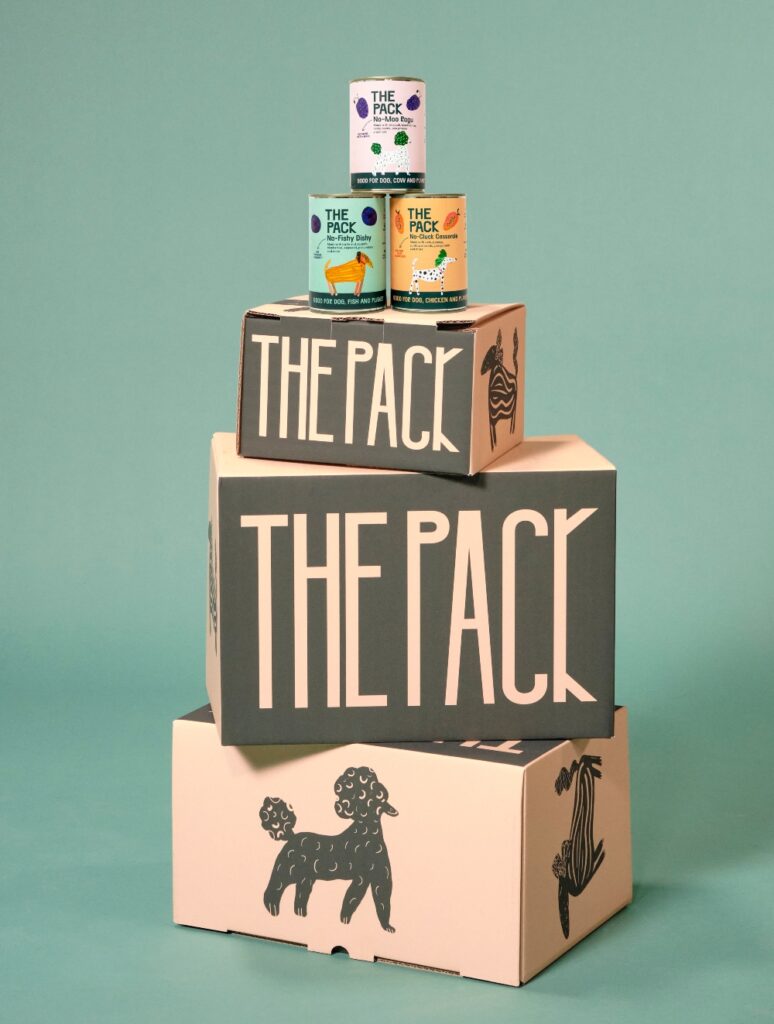
Finally, when you invest in environmentally conscious vegan pet brands, you’re generally also paying for their sustainable mission, including their eco packaging. THE PACK is a pending B Corp and uses 100 percent recyclable paper, even down to the anti-tamper tape, while all Hownd’s packaging is recyclable, including its polypropylene dog bowls. Petaluma is a certified B Corp, meaning it places sustainability at the forefront. This also includes offsetting 100 percent of its greenhouse gas emissions and donating 1 percent of all revenue to non-profits fighting the climate crisis and food insecurity.
Of course, this is all academic if you have a limited budget to spend on dog food. We get it. But even if you can’t afford to feed plant-based food for every meal, there are huge benefits to investing in it as an occasional treat or mixing just half a can with your dog’s regular daily dinner.
Even doing Meat-Free Mondays with your dog means less dollars going to animal farming and more demand for vegan alternatives. Every pawsitive move towards putting plant-based food on a level playing field with meat counts, whether it’s a Chihuahua-sized step or a Great Dane’s stride!
Are we asking the right questions?
Instead of questioning why plant-based dog food is so expensive, we need to start asking, loudly: “Why is meat-based dog food so cheap?” As dog guardians and advocates for animals and the planet, we need to demand more transparency from the meat industry. We should know exactly what we’re paying for and how we’re paying it.
At a time when every penny counts, the real scandal isn’t the high price of vegan pet food but the hidden costs of those “cheap” brands offering meaty dog food: the price we pay via our taxes, the price paid by animals in factory farms, the price paid by our pets’ health (and by us in veterinary bills) and, last but not least, the price paid by our struggling planet.
Use code 40OFFPBN for an exclusive 40 percent off your purchase with THE PACK. For more information about THE PACK, visit its website, Facebook, Twitter, Instagram, or TikTok.
—
* This is paid-for content; funds from this article help Plant Based News continue to provide millions of people around the world with free content they know and love. We only work with brands we support and use ourselves.
